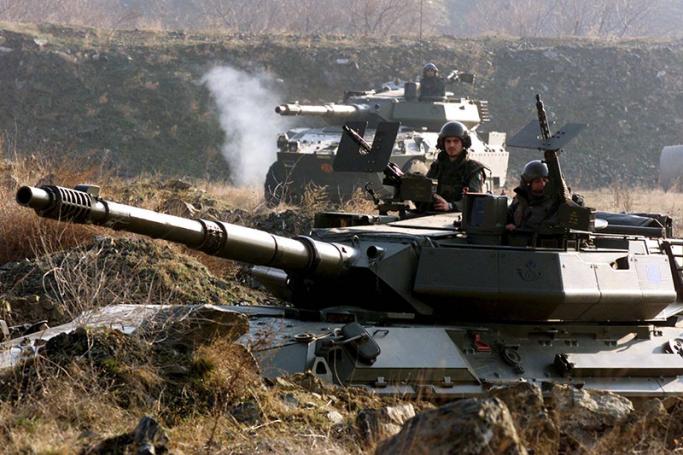Since August 25, the conflicts between the insurgent group Arakan Rohingya Salvation Army (ARSA) and the armed police of the Myanmese government have become ever more intense. Despite the cease-fire proposal by the insurgents, the Myanmese government rebuffed it, declaring simply that it did not negotiate with terrorists, according to Reuters. Since the fundamental problem behind the conflicts remains unsolved, new ones will soon arise.
Some media outlets worry that a worsened situation in Rakhine may result in the same calamity that happened in Yugoslavia, where civil war spread, the people suffered greatly and the country eventually fell apart. Conflicts among different ethnicities were important factors that led to the final fate of the Socialist Federal Republic of Yugoslavia.
To stop this from happening, the Rakhine crisis must be resolved because its impact on Myanmar is multi-dimensional and serious.
Rakhine is located in the west of Myanmar with Rakhine people, predominantly Buddhists, being the ethnic majority and Rohingya people, predominantly Muslims, the ethnic minority.
Over the past decades, the two groups have suffered fierce and deep-rooted conflict, not only because they have different religious beliefs, but also because the two fought over scarce state and social resources, land, and employment opportunities.
Rakhine people and other Buddhists in Myanmar thought Rohingyas were foreigners from Bangladesh to whom the government should not give citizenship and called on the government to deport them.
But the Rohingyas believed that because they had resided in the country for so long, they had the right to citizenship and other entitlements.
The Rakhine conflicts and refugee crisis have caused the National League for Democracy (NLD) government to be confronted with dual pressure, at both home and abroad, its major dilemma since coming into power.
The government, led by Aung San Suu Kyi, has made lots of efforts in solving the religious conflicts throughout last year. On the evening of August 24, the Myanmese government announced they would adopt and implement several reconciliation prepositions decided on by the Advisory Commission on Rakhine State led by former UN secretary-general Kofi Annan.
But taking into account the extreme and violent attacks on the police which occurred just the next day on August 25, stability has been prioritized and the reconciliation process has been postponed.
Rohingyas at home and abroad have accused the Myanmese government of long-term human rights abuses and shooting refugees crossing the border. The turbulence in Rakhine has not only provoked a severe refugee crisis on the Myanmar-Bangladesh border, but triggered great concern and pressure from Muslim countries in Southeast Asia, and even the whole Islamic world.
ASEAN's largest Muslim country Indonesia and the second largest Malaysia have also been putting pressure on Myanmar. Meanwhile, the US, European countries and international organizations have been pressuring Suu Kyi and her government to grant the Rohingyas Myanmese citizenship.
Although the situation in Rakhine is not promising, Myanmar probably will not face a breakup like the former Yugoslavia. First, the reason for the Yugoslav Civil War in the 1990s was due to several republics' desire for independence.
Conflicts broke out in republics of the former and led to the eventual breakup of the federation. The situation in Myanmar, however, is different from that in Yugoslavia.
The main problem for Rakhine is the conflicts between Buddhists and Muslims, different from the multi-ethnic and multi-religious conflicts that happened in Yugoslavia.
Second, about 20 branches of local insurgent groups exist in Myanmar's Shan, Kachin and Mon states, which have disagreements and have initiated armed conflicts with government forces. However, as for now, these insurgent groups have rarely announced that they are indeed seeking independence; what they predominantly want, rather, is a high degree of autonomy.
In order to force Russian influence out of Eastern Europe, the US, the European Union and NATO became deeply involved in the civil war in the former Yugoslavia. In 1990 in particular, NATO forces bombed Yugoslavia for 78 days under the excuse of "preventing humanitarian disaster" and forced the Yugoslav government to surrender, an important event that led to the eventual independence of Kosovo.
There has been no such intervention in Myanmar thus far, but, at present, the US and Europe do in fact want to interfere in the Rakhine affairs under the excuse of "preventing humanitarian disaster" also.
To summarize, the most urgent affair lying before Rakhine is to seek out a way to solve the crisis in a joint effort with the Myanmese government, the military, Buddhists and Muslim Rohingya people, thus creating a stable and harmonious environment that would allow the implementation of the reconciliation prepositions as opposed to just pointing fingers at one another.
The author is an associate professor and unit chief of Bay of Bengal Unit, Institute of South Asian, Southeast Asian and Oceanian Studies, China Institute of Contemporary International Relations. [email protected]
Courtesy of Global Times
You are viewing the old site.
Please update your bookmark to https://eng.mizzima.com.
Mizzima Weekly Magazine Issue...
14 December 2023
Spring Revolution Daily News f...
13 December 2023
New UK Burma sanctions welcome...
13 December 2023
Spring Revolution Daily News f...
12 December 2023
Spring Revolution Daily News f...
11 December 2023
Spring Revolution Daily News f...
08 December 2023
Spring Revolution Daily News f...
07 December 2023
Diaspora journalists increasin...
07 December 2023
UNHCR chief appeals to Myanmar government to help IDPs, refugees












